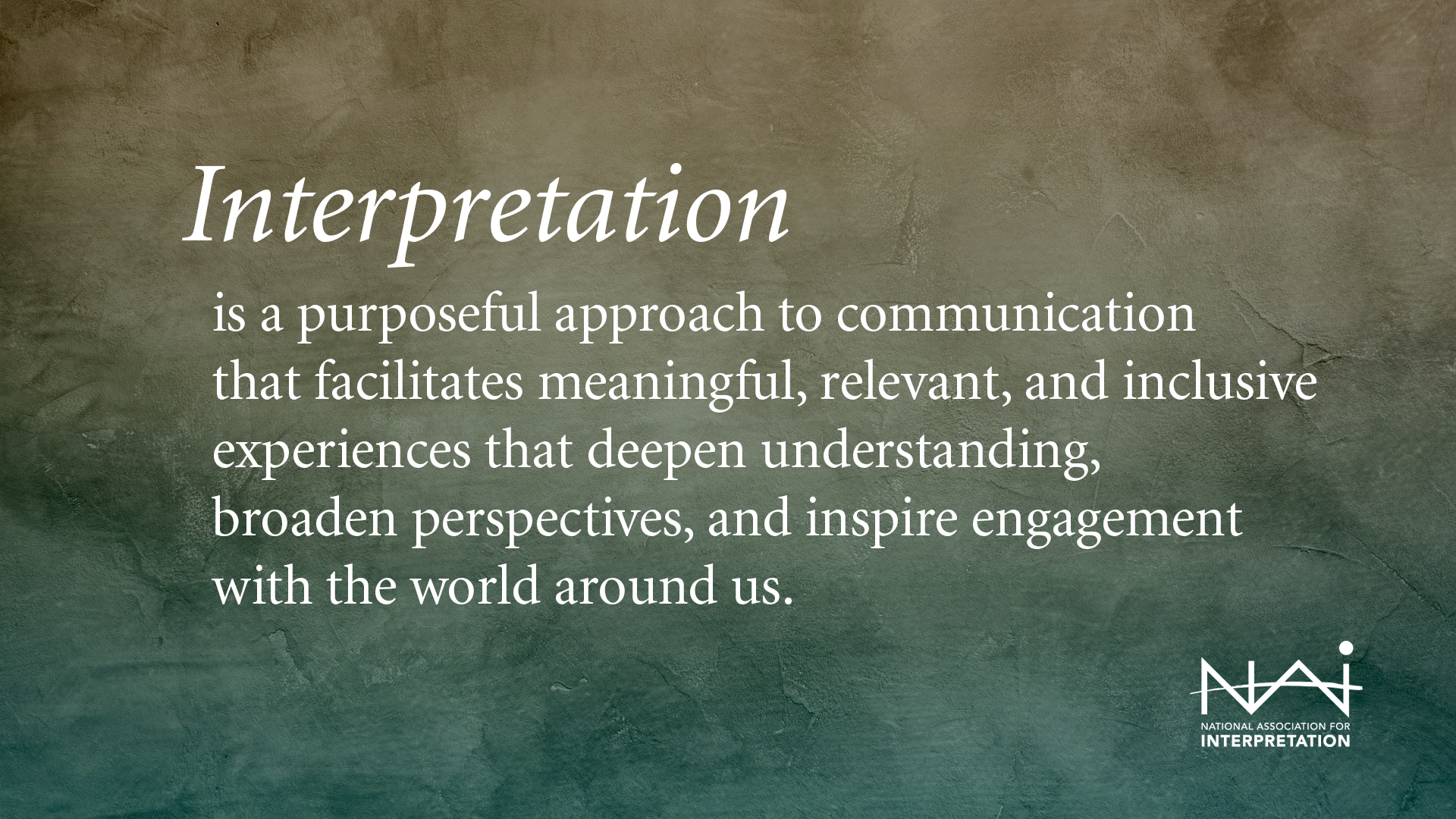NAI and Interpretation defined
NAI
The National Association for Interpretation (NAI) was founded in 1988. NAI is the recognized voice of interpretation, and exists to support interpreters from all settings: living history sites, museums, zoos, nature centers, aquariums, state and national parks, and so many more. Since 1988 NAI has been working to expand recognition of the profession and provide opportunities for interpreters to share ideas and learn new skills. NAI provides several interpretive certification programs, workshops, regional and national conferences, and communities.
The Maritime Aquarium has an organizational membership to NAI that allows volunteers and staff to access their resources, purchase memberships at discounted rates, and participate in training at member rates (except for certification programs). For more information on NAI visit www.interpnet.com
What is Interpretation?
Interpreters connect visitors to important natural, cultural, and historical resources at parks, nature centers, historical sites, aquariums, zoos, and anywhere that people come to learn about places.

Interpretation as a Profession
Interpretation can be informal and spontaneous. Or it can be carefully structured to elicit specific responses. Or it can be a combination of both of these approaches. But interpretation is more than a simple act of communication. It is based on theory that draws from many disciplines. the theoretical base is supported by a body of ongoing research, which has resulted in an accumulation of knowledge about the art and science of interpretation. That knowledge can be applied to the practice of interpretation.
Humans have forever searched for connections and understanding. Helping others find those connections and develop for themselves a level of understanding has been a fundamental activity of human society. Great value has been placed on guides, those who share their knowledge and experience, folks who can help point the way. From village elders and wise women to philosophers and teachers, from bards and troubadours to actors and playwrights, from painters and sculptors to writers and printers, naturalists and scientists, scouts, park rangers, tour guides museum docents, educators, and more have all been practitioners of the art of interpretation.
The National Association for Interpretation (NAI) was founded in 1988. NAI is the recognized voice of interpretation, and exists to support interpreters from all settings: living history sites, museums, zoos, nature centers, aquariums, state and national parks, and so many more. Since 1988 NAI has been working to expand recognition of the profession and provide opportunities for interpreters to share ideas and learn new skills. NAI provides several interpretive certification programs, workshops, regional and national conferences, and communities.
The Maritime Aquarium has an organizational membership to NAI that allows volunteers and staff to access their resources, purchase memberships at discounted rates, and participate in training at member rates (except for certification programs). For more information on NAI visit www.interpnet.com
What is Interpretation?
Interpreters connect visitors to important natural, cultural, and historical resources at parks, nature centers, historical sites, aquariums, zoos, and anywhere that people come to learn about places.

Interpretation as a Profession
Interpretation can be informal and spontaneous. Or it can be carefully structured to elicit specific responses. Or it can be a combination of both of these approaches. But interpretation is more than a simple act of communication. It is based on theory that draws from many disciplines. the theoretical base is supported by a body of ongoing research, which has resulted in an accumulation of knowledge about the art and science of interpretation. That knowledge can be applied to the practice of interpretation.
Humans have forever searched for connections and understanding. Helping others find those connections and develop for themselves a level of understanding has been a fundamental activity of human society. Great value has been placed on guides, those who share their knowledge and experience, folks who can help point the way. From village elders and wise women to philosophers and teachers, from bards and troubadours to actors and playwrights, from painters and sculptors to writers and printers, naturalists and scientists, scouts, park rangers, tour guides museum docents, educators, and more have all been practitioners of the art of interpretation.
Interpretation:
- provides public service with social responsibility
- is based on foundation of researched knowledge
- requires specialized education and training
- has certification programs (through NAI)
- supports an established code of ethics